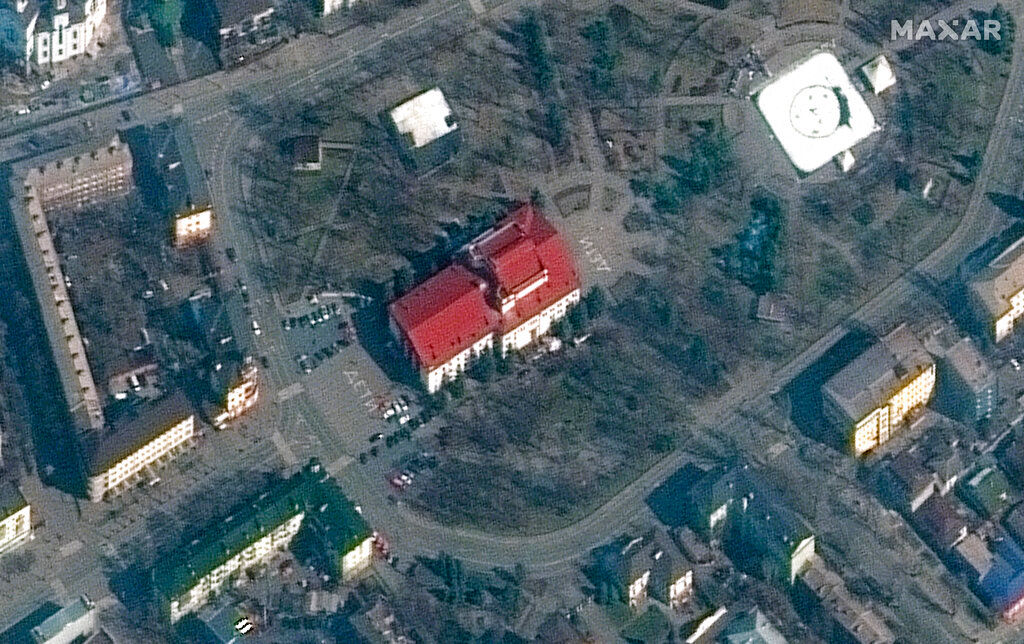Ukraine President Volodymyr Zelensky on Friday said that while 130 people had been rescued from a theatre in Mariupol that had been destroyed by a Russian airstrike, more than 1,000 women and children still remained trapped underneath the rubble.
Speaking on Ukrainian television, the 44-year-old President said, “More than 130 people have been saved. But hundreds of Mariupol residents are still beneath the rubble.”
Russia on Wednesday allegedly carried out an airstrike on the theatre where reportedly 1,300 women and children had taken shelter to avoid Russian shelling.
Also read | United in art: Italy to rebuild Ukraine’s Mariupol theatre destroyed by Russians
Ukrainian defence forces had also taken the effort to write “CHILDREN” in Russian in huge white letters that were visible even in satellite images of the theatre in a bid to signal to Russian forces that the building was housing civilians.
Moscow, however, maintains that it did not carry out the attack.
Since the invasion began on February 24, at least 816 civilians have been killed and 1,333 wounded in Ukraine according to the United Nations (UN), and Zelensky on Friday went on to accuse Russia of shelling Mariupol and hampering efforts to establish a humanitarian corridor for the evacuation of civilians from the war-torn city.
Mariupol, a strategic port city in southern Ukraine, has been under Russian siege for a while now and fighting now has reportedly reached the city centre.
Also read | Russian pilot who bombed Mariupol theatre housing kids is a ‘monster’, says Ukraine
Indeed, on Friday, Mariupol Mayor Vadym Boichenko told the BBC, “Yes, they were really active today. Tanks and machine gun battles continue. Everybody is hiding in bunkers.”
He added that 80% of buildings in the port city had been damaged by Russian shelling and missile strikes, and that 30% of buildings had suffered so much damage that future restoration would be impossible.
“There’s no city centre left. There isn’t a small piece of land in the city that doesn’t have signs of war,” Boichenko further said.







